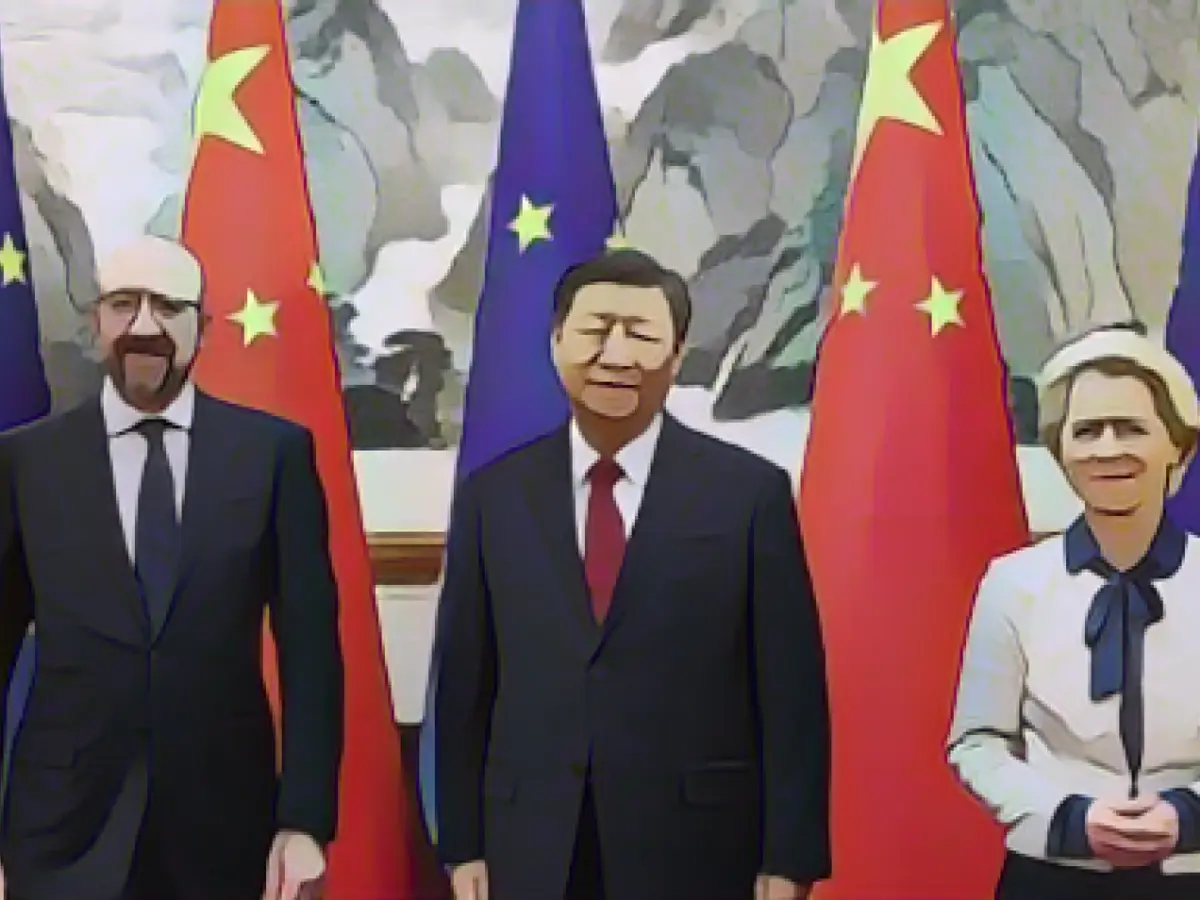EU leaders admonish Beijing at summit meeting over Taiwan and Ukraine war
The EU is "concerned" about the growing tensions around Taiwan and China's increasing military presence in areas disputed with other states in the South China Sea, Michel said after the first face-to-face meeting between EU leaders and the Chinese head of state in more than four years. He said he was confident that Beijing was "fully aware of the serious consequences of an escalation in this region".
Michel also expressed the EU's hope that China would increase the pressure on Russia to end its war of aggression against Ukraine. The EU would like Beijing to take a "more forceful" stance on this issue. Commission President von der Leyen said that Brussels had made it clear that China's stance on the war in Ukraine would also determine its relationship with the EU.
However, the Foreign Ministry in Beijing made it clear after the meeting that China apparently has no intention of changing its approach to Moscow. Russian President Vladimir Putin decides "on the basis of his own national interest and security", Wang Lutong, head of the ministry's Europe department, told journalists.
Following the meeting, representatives of the EU and China also had differing views on mutual trade relations. Von der Leyen said she was "glad that we have agreed with President Xi that trade between the two of us should be balanced". Chinese diplomat Wang, on the other hand, stated that in his opinion, Beijing "cannot be held responsible" for the European trade deficit with China.
With regard to the general relationship between the EU and China, Council President Michel said that this was "complex" and required "frank and open discussions". Such discussions had taken place at the summit in Beijing. Both sides had an interest in a "stable and constructive relationship".
"Sometimes our interests coincide," von der Leyen said at the start of the meeting. She referred to the cooperation between the EU and China on climate policy and artificial intelligence. Xi had said that China and the EU must "respond to global challenges together".
The meeting was overshadowed by Italy's withdrawal from the Chinese New Silk Road investment initiative, which was announced on Wednesday. Italy, the EU's third-largest economy, was the only G7 country to join the project launched by Xi. Since 2013, this has led to the construction of ports, railroad lines, airports and industrial parks, primarily in Asia, Africa and Europe. The projects are intended to give China better access to the markets of other countries.
China's Foreign Ministry spokesperson Wang Wenbin said on Thursday with regard to the New Silk Road that his country "resolutely opposes the slander and undermining of cooperation" in the project and denounced "confrontation and division" between individual camps. Particularly in the West, Beijing is often criticized for deliberately driving poorer countries into dependency with the New Silk Road. Many participating countries have run up massive debts in some cases.
Read also:
- This will change in December
- German activists speak out in Dubai on suffering in Israel and the Gaza Strip
- Nuclear fusion - hype or solution to energy problems?
- Budget crisis fuels debate on citizen's income - Bas warns against populism
- At the summit meeting, EU leaders criticized China for its actions regarding Taiwan and the Ukraine war.
- The EU expressed concern over China's escalating tensions around Taiwan and its military activities in disputed areas in the South China Sea.
- Michel hoped that China would use its influence to pressure Russia to end its aggression against Ukraine.
- Von der Leyen stated that China's stance on Ukraine would impact its relationship with the EU.
- However, China's Foreign Ministry indicated it wouldn't change its approach to Russia due to Putin's national interests.
- Von der Leyen was pleased with the agreement on balanced trade between the EU and China, while Wang saw no responsibility for the EU's trade deficit.
- The relationship between the EU and China was described as complex and requiring open discussions by Michel.
- Xi and von der Leyen agreed that both sides should cooperate to tackle global challenges like climate policy and artificial intelligence.
- The summit was affected by Italy's withdrawal from the Chinese New Silk Road investment initiative, with Wang defending the project against accusations of indebtedness and division.
- Putin attended the EU top meeting in Brussels, with Charles Michel admonishing Russia for its role in Ukraine's conflict.
- Xi Jinping and Ursula von der Leyen discussed various issues, including trade and cooperation, expressing hopes for a strong relationship that serves global interests.
Source: www.stern.de







